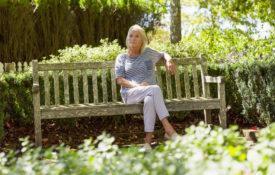-

Childhood Health and Cultural Inequalities: Women Pay the Price
A culturally underprivileged childhood increases a person’s risk of being less physically active in adulthood. This risk is greater for women than for men, according to new research published in the journal Psychological Science.
-

New Research From Clinical Psychological Science
A sample of research on nonsuicidal self-injury, emotion, pregnancy and mental health during COVID-19, rumination and learning, psychopathology models, antisocial behavior, close relationships and COVID-19, and the use of personality traits to predict mental health.
-

New Research in Psychological Science
A sample of research on number-to-space mapping, linguistic cues of lies in real life, stress and inflammation, fear responses, visual perception, group membership and copy of behaviors, how a narrative can change support for extremism, and object perception.
-

Debunking Four Common Myths of Psychological Science
Under the Cortex takes a skeptical deep dive to explore some the most common myths about psychological science and the brain.
-
‘No Regrets’ Is No Way to Live
“No Regrets.” It’s an alluring motto, a handy recipe for success and satisfaction. Reject the pain of looking backward, revel in the pleasure of dreaming forward, and the good life will ensue. Little wonder that this simple maxim transcends political and cultural divides. The Rev. Dr. Norman Vincent Peale —Christian, conservative, mentor to Republican presidents—urged his followers to drop the very word “regret” from their vocabularies. Justice Ruth Bader Ginsberg —Jewish, liberal, appointee of Democratic presidents—concurred.
-
This Is When Uncertainty Can Be Motivating, According to Science
Nearly two years into COVID-19, and we continue to deal with a lot of uncertainty. Are we preparing for the end of pandemic, or will we need to figure out a way to live with it indefinitely? Are we planning a return to the office, or should we just keep working from home? Living with uncertainty can create a steep decline in motivation, especially if you think you have no control, says Ayelet Fishbach, author of Get it Done: Surprising Lessons from the Science of Motivation. “For some people, the pandemic feels out of our control, even though we can control how likely we are to get sick,” she says.

